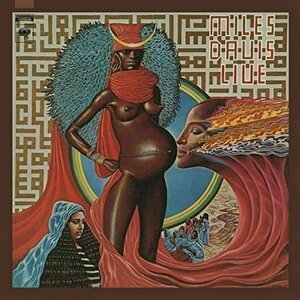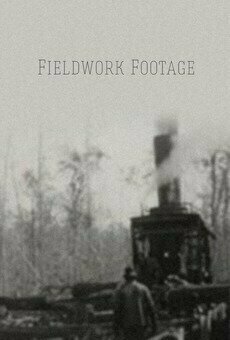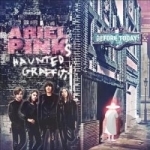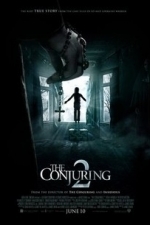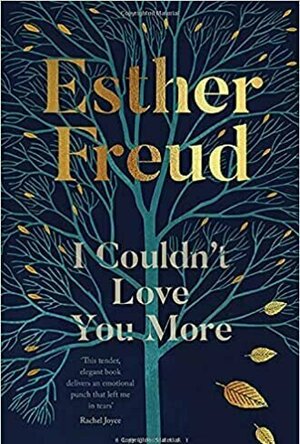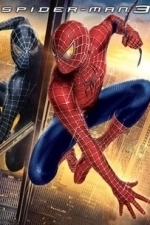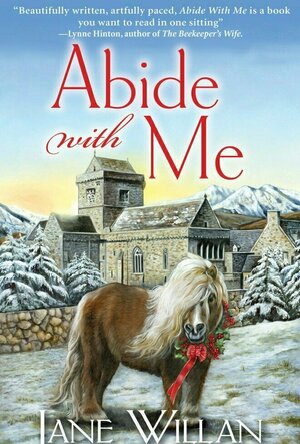Search
Search results
Daniel Rossen recommended track Little Church by Miles Davis in Live Evil by Miles Davis in Music (curated)
Jacqueline Stewart recommended Fieldwork Footage (1928) in Movies (curated)
Cate Le Bon recommended Before Today by Ariel Pink's Haunted Graffiti in Music (curated)
Andrew Kennedy (199 KP) rated The Conjuring 2 (2016) in Movies
Jun 6, 2021
Contains spoilers, click to show
The Conjuring 2 is based on the events of The Enfield poltergeist from 1977 the film however starts with the Warren's involvement with The Amityville incident it is during this that Lorraine has a vision of Ed dying.
In England a single mother of four is struggling to make ends meets for her family and then one of the daughters,Janet, starts to experience waking downstairs. It isn't long till it is established its a haunting. Various experts and skeptics alike decend on to the family home till during a TV interview Janet speaks as that of former home resident Bill Watkins.
This eventually brings in the church who contact the Warren's for them to assess whether its a hoax or not.
It is definitely presented as real. Lorraine is still troubled by her premonition of Eds demise but they seem to bond with the family.
Plenty of twists and scares and huge amount of atmosphere make this, dare I say it, a more enjoyable watch then the first Conjuring.
Of course this is based on a real life situation and all the players who were involved are represented in the film. However, the Warren's involvement was nowhere near as much as portrayed here (claims that no one even knew who Ed Warren was). In the end some believe its Britain's Amityville or a clever hoax by some teen girls, the film doesn't try to get into though there is a scene which eludes to the fact it could have been a hoax.
Patrick Wilson and Vera Farmiga are back as the Warren's and are both very good in there roles. It is however young Madison Wolfe as Janet who steals the show from confused, scared little girl to snarling demon. The TV interview scene she portrays the point where Janet is possessed superbly.
Special mention to Simon Mcburney for his portrayal of Maurice Grossae.
James Wan is a man who knows how to
In the end I give The Conjuring 2 top marks. A film I enjoyed immensely and actually preferred this to the original.
In England a single mother of four is struggling to make ends meets for her family and then one of the daughters,Janet, starts to experience waking downstairs. It isn't long till it is established its a haunting. Various experts and skeptics alike decend on to the family home till during a TV interview Janet speaks as that of former home resident Bill Watkins.
This eventually brings in the church who contact the Warren's for them to assess whether its a hoax or not.
It is definitely presented as real. Lorraine is still troubled by her premonition of Eds demise but they seem to bond with the family.
Plenty of twists and scares and huge amount of atmosphere make this, dare I say it, a more enjoyable watch then the first Conjuring.
Of course this is based on a real life situation and all the players who were involved are represented in the film. However, the Warren's involvement was nowhere near as much as portrayed here (claims that no one even knew who Ed Warren was). In the end some believe its Britain's Amityville or a clever hoax by some teen girls, the film doesn't try to get into though there is a scene which eludes to the fact it could have been a hoax.
Patrick Wilson and Vera Farmiga are back as the Warren's and are both very good in there roles. It is however young Madison Wolfe as Janet who steals the show from confused, scared little girl to snarling demon. The TV interview scene she portrays the point where Janet is possessed superbly.
Special mention to Simon Mcburney for his portrayal of Maurice Grossae.
James Wan is a man who knows how to
In the end I give The Conjuring 2 top marks. A film I enjoyed immensely and actually preferred this to the original.
Laura Doe (1350 KP) rated I Couldn't Love You More in Books
Jul 1, 2021
A very confusing book. Timelines all over the place and changing between there different characters meant that I spent most of the first half of the book confused about what was happening and how old certain characters were at that point in the story.
The story follows three women Aoife, Rosaleen and Kate, who are three generations of the same family. Throughout the book Aoife is wondering where her daughter has gone as she seems to have vanished without a trace after coming home one Christmas and then never to be heard from again. Rosaleen has her own secret, that she is pregnant with a married man’s baby and finds herself going to a convent to have her baby, and this book sheds some light on the horrors that unmarried mothers had to suffer before and after giving birth and having their babies taken from them. Kate was adopted and is trying to find out information about her birth mother whilst also trying to cope with her husband who spends most of his time “with the band” and coming back drunk most nights.
The story was an interesting look at how the Catholic Church dealt with expectant mothers who weren’t married, and although you’d think going to a convent for help they would be well looked after, it didn’t work out that way at all. But I did find that it was unnecessarily confusing and jumped around with the timelines quite a lot.
I found myself not wanting to sit down and carry on with the book, but I did persevere with it because I wanted to know how it turned out. The writing was beautiful and some of the descriptions really did make you feel like you were there. The ending seemed quite rushed and after 95% of the book being emotional and there not seeming like there would be a happy ending, the last few pages of the book seemed to solve everything quickly. It would have been nice to have a few more pages around that and questions answered around whether Aoife ever found out what happened to her daughter.
Thank you to Esther and Pigeonhole for allowing me to read this book in return for an honest review.
The story follows three women Aoife, Rosaleen and Kate, who are three generations of the same family. Throughout the book Aoife is wondering where her daughter has gone as she seems to have vanished without a trace after coming home one Christmas and then never to be heard from again. Rosaleen has her own secret, that she is pregnant with a married man’s baby and finds herself going to a convent to have her baby, and this book sheds some light on the horrors that unmarried mothers had to suffer before and after giving birth and having their babies taken from them. Kate was adopted and is trying to find out information about her birth mother whilst also trying to cope with her husband who spends most of his time “with the band” and coming back drunk most nights.
The story was an interesting look at how the Catholic Church dealt with expectant mothers who weren’t married, and although you’d think going to a convent for help they would be well looked after, it didn’t work out that way at all. But I did find that it was unnecessarily confusing and jumped around with the timelines quite a lot.
I found myself not wanting to sit down and carry on with the book, but I did persevere with it because I wanted to know how it turned out. The writing was beautiful and some of the descriptions really did make you feel like you were there. The ending seemed quite rushed and after 95% of the book being emotional and there not seeming like there would be a happy ending, the last few pages of the book seemed to solve everything quickly. It would have been nice to have a few more pages around that and questions answered around whether Aoife ever found out what happened to her daughter.
Thank you to Esther and Pigeonhole for allowing me to read this book in return for an honest review.
LeftSideCut (3776 KP) rated Spider-Man 3 (2007) in Movies
Sep 24, 2020 (Updated Sep 24, 2020)
The third and final entry in the Sam Raimi trilogy of Spider-Man films is arguably the most well known, unfortunately for all the wrong reasons, and it's a real shame as there are flashes of greatness, but the finished product is a hot mess.
One of the main issues is of course the three big villains all battling for screentime. Sandman (Thomas Haden Church) is a great villain to add to the series, but his story is executed poorly, and includes a dumb retcon in a half arsed attempt to link him to the original film. It's just unnecessary and soils something that could have been good. And then there's Venom - A huge fan favourite villain who Sam Raimi apparently doesn't like, and it's evident. Eddie Brock (Topher Grace) is rushed into the narrative, and his reasons for hating Peter Parker feel forced as a result. Venoms inclusion feels a bit tacked on, and unfortunately reaks of studio meddling.
Other than that, there's also the issue of over confidence - the assumption that an audience wants to watch an edgy version of Tobey Maguire's Peter Parker swanning and dancing down a street is bold to say the least - I could even forgive the infamous scene if it wasn't immediately followed up with a second dance number in a jazz bar. I get that it's designed to portray the symbiote suits hold over Peter and his deteriorating character attributes, buts it's a massive shitty swing and a miss (much like the whole movie in general) that makes me want to scream.
It's not all bad though. All of the cast, new and familiar, are good. I think Bryce Dallas Howard is a great Gwen Stacy. It has some decent set pieces as well - the scene where Sandman is discovering his new powers is brilliant, as is the fight between him and black suit Spider-Man in the underground. I also quite enjoy the final showdown when we (finally) get to see Venom properly.
It's not enough though, and Spider-Man 3 ultimately is a flawed if ambitious comic book sequel.
One of the main issues is of course the three big villains all battling for screentime. Sandman (Thomas Haden Church) is a great villain to add to the series, but his story is executed poorly, and includes a dumb retcon in a half arsed attempt to link him to the original film. It's just unnecessary and soils something that could have been good. And then there's Venom - A huge fan favourite villain who Sam Raimi apparently doesn't like, and it's evident. Eddie Brock (Topher Grace) is rushed into the narrative, and his reasons for hating Peter Parker feel forced as a result. Venoms inclusion feels a bit tacked on, and unfortunately reaks of studio meddling.
Other than that, there's also the issue of over confidence - the assumption that an audience wants to watch an edgy version of Tobey Maguire's Peter Parker swanning and dancing down a street is bold to say the least - I could even forgive the infamous scene if it wasn't immediately followed up with a second dance number in a jazz bar. I get that it's designed to portray the symbiote suits hold over Peter and his deteriorating character attributes, buts it's a massive shitty swing and a miss (much like the whole movie in general) that makes me want to scream.
It's not all bad though. All of the cast, new and familiar, are good. I think Bryce Dallas Howard is a great Gwen Stacy. It has some decent set pieces as well - the scene where Sandman is discovering his new powers is brilliant, as is the fight between him and black suit Spider-Man in the underground. I also quite enjoy the final showdown when we (finally) get to see Venom properly.
It's not enough though, and Spider-Man 3 ultimately is a flawed if ambitious comic book sequel.
Shelle Perry (66 KP) rated Abide With Me : A Sister Agatha and Father Selwyn Mystery in Books
Dec 16, 2020
A young journalist is visiting Gwenafwy Abby, presumably writing a story on the new directions the church is taking. When she is found dead, Sister Agatha does not believe the theory of an accidental death. She starts a new notebook and dives into the case chasing down clues. Does the young woman’s death have something to do with scathing articles she has written in the past? Or, could it be an ex-boyfriend who just happens to show up in town, and just who was it seen entering the woman’s cottage after her death?Sister Agatha is a bit of a handful. She doesn’t do anything by half measures. One simply has to adore a nun who writes detective romance stories, has a murder club to help her with amateur sleuthing, and looks to famous literary detectives for advice. What would Miss Marple do??? Agatha’s weakness for cake lends itself to wonderful descriptions of mouthwatering traditional Welsh food. In this story, nearly everyone close to the Abby is a suspect. As much as Agatha and the reader want the killer to be found out and caught, it is likely that it will be heartbreaking for the nuns. Agatha keeps her moxie to the thrilling end of the investigation though.These are characters I would love to sit and visit with. From the put upon police department and store clerks to the individual sisters at the Abby. Maybe spend a few days learning to make cheese, especially since Gouda is my family’s fave.I loved the social commentary on modern technology and how it fits into a cloistered setting. Mostly I just giggled over the names of the shops in town, I won’t spoil them all, but, my favorites are The Fatted Calf farm to table market and Lettuce Eat Vegan.So why should you read this book? Because it is quirky, brilliant, softboiled Cozy at its best. The cast of characters and their personal stories will have you scrambling to read the first two books, or waiting impatiently for the next one.

Logos: Bible study and reading
Reference and Book
App
The free Logos Bible app is designed and built for deeper Bible study. Read, study, and share your...

Mobel bell ringing simulator
Music and Games
App
Mobel is a bell ringing simulator for church bell ringers and handbell change ringers. When ringers...

50th Anniversary Edition Mellotronics M3000
Music and Entertainment
App
Now with In-App Tape Store! Robert Fripp, King Crimson, September 2014 : "We no longer take...
